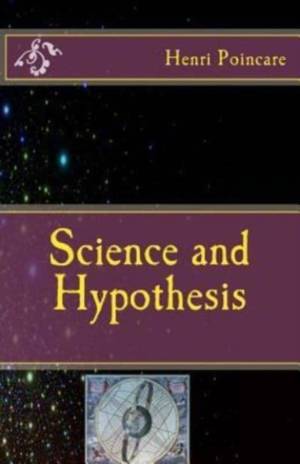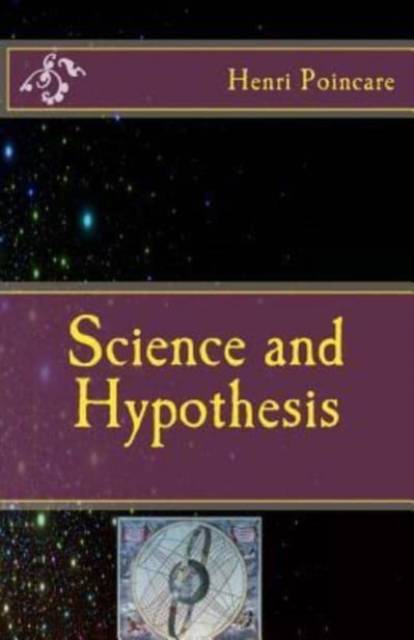
- Afhalen na 1 uur in een winkel met voorraad
- Gratis thuislevering in België vanaf € 30
- Ruim aanbod met 7 miljoen producten
- Afhalen na 1 uur in een winkel met voorraad
- Gratis thuislevering in België vanaf € 30
- Ruim aanbod met 7 miljoen producten
Zoeken
Omschrijving
Philosophy of science is a branch of philosophy concerned with the foundations, methods, and implications of science. The central questions concern what counts as science, the reliability of scientific theories, and the purpose of science. This discipline overlaps with metaphysics, ontology and epistemology, for example, when it explores the relationship between science and truth. There is no consensus on many central problems in philosophy of science, including whether science can reveal the truth about unobservable things and whether scientific reasoning can be justified at all. In addition to these general questions about science as a whole, philosophers of science consider problems that apply to particular sciences such as biology or physics. Some philosophers of science also use contemporary results in science to reach conclusions about philosophy.While the relevant history of philosophy dates back at least to Aristotle, philosophy of science emerged as a distinct discipline only in the middle of the 20th century in the wake of logical positivism, a movement that aimed to formulate criteria to ensure all philosophical statements' meaningfulness and objectively assess them. Thomas Kuhn's book The Structure of Scientific Revolutions brought the word "paradigm" into the mainstream, meaning the set of practices that define a scientific discipline in a particular period. Kuhn challenged the established view that science achieves clear progress over time.Today, some thinkers seek to ground science in axiomatic assumptions such as the uniformity of nature. The majority of philosophers of science, however, take a coherentist approach to science in which a theory is validated if it makes sense of observations as part of a coherent whole. Still others, and Paul Feyerabend in particular, argue that there is no such thing as the "scientific method", so all approaches to science should be allowed, including explicitly supernatural ones. Another approach to thinking about science is to study how knowledge is created from a sociological perspective. Finally, there is a tradition in Continental philosophy which approaches science from the perspective of a rigorous analysis of human experience.Philosophy of the particular sciences ranges from questions about the nature of time raised by Einstein's general relativity to the implications of economics for public policy. A central theme is whether one scientific discipline can be reduced to the terms of another. That is, can chemistry be reduced to physics, or can sociology be reduced to individual psychology? The general questions of philosophy of science also arise with greater specificity in the particular sciences. For instance, the question of the validity of scientific reasoning is seen in a different guise in the foundations of statistics. The question of what counts as science and what should be excluded arises as a life-or-death matter in the philosophy of medicine. And philosophies of biology, psychology, and the social sciences explore whether the scientific study of human nature can achieve objectivity or is inevitably shaped by values and social relations.It would be hard to find any one better qualified for this kind of exposition, either from the profundity of his own mathematical achievements, or from the extent and freshness of his interest in the theories of physical science, than the author of this book. If an appreciation might be ventured on as regards the later chapters, they are, perhaps, intended to present the stern logical analyst quizzing the cultivator of physical ideas as to what he is driving at, and whither he expects to go, rather than any responsible attempt towards a settled confession of faith. Thus, when M. Poincare allows himself for a moment to indulge in a process of evaporation of the Principle of Energy.
Specificaties
Betrokkenen
- Auteur(s):
- Vertaler(s):
- Uitgeverij:
Inhoud
- Aantal bladzijden:
- 296
- Taal:
- Engels
Eigenschappen
- Productcode (EAN):
- 9781505488425
- Verschijningsdatum:
- 11/12/2014
- Uitvoering:
- Paperback
- Formaat:
- Trade paperback (VS)
- Afmetingen:
- 140 mm x 216 mm
- Gewicht:
- 379 g

Alleen bij Standaard Boekhandel
+ 45 punten op je klantenkaart van Standaard Boekhandel
Beoordelingen
We publiceren alleen reviews die voldoen aan de voorwaarden voor reviews. Bekijk onze voorwaarden voor reviews.











